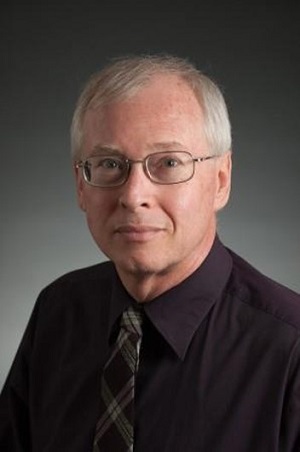Daniel M. Fleetwood, Olin H. Landreth Professor of Engineering, has been named a fellow of the American Association for the Advancement of Science for distinguished contributions to the field of microelectronics reliability, particularly for enhancing the understanding of defects, radiation response and low-frequency noise.
He is considered one of the first scientists to identify the origins of flicker noise, a type of electronic noise with a 1/f power spectral density, in semiconductor devices and its usefulness in understanding the effects of ionizing radiation on microelectronic devices and materials.

Fleetwood chairs the Department of Electrical Engineering and Computer Science and is a professor of electrical engineering as well as physics. He is part of the Institute for Space and Defense Electronics and the Radiation Effects and Reliability Group, which is the largest of its type at any U.S. university.
His research interests include effects of ionizing radiation on microelectronic devices and materials, flicker noise in semiconductors, radiation hardness assurance test methods for mission-critical equipment, radiation effects modeling and simulation and novel microelectronic materials. Specific work includes thermally stimulated current methods to profile defects in insulators, charge trapping in silicon dioxide and interface-trap generation as well as advanced microelectronic processing/characterization, including ultra-thin oxides and alternative dielectrics.
He is the author of more than 600 publications on radiation effects in microelectronics, defects in semiconductor devices, and low-frequency noise—more than a dozen of which have been recognized with Outstanding Paper Awards. These papers have been cited more than 20,000 times.
Fleetwood joined Vanderbilt in 1999 after working for 15 years at Sandia National Laboratories in Albuquerque, New Mexico, where he was named a Distinguished Member of the Technical Staff in the Radiation Technology and Assurance Department in 1990.
He is also a Fellow of the Institute for Electrical and Electronics Engineers and The American Physical Society. In 2009, he received the IEEE Nuclear and Plasma Sciences Society’s Merit Award, which is the society’s highest individual technical honor. He currently serves as Senior Editor, Radiation Effects, for the IEEE Transactions on Nuclear Science, and Distinguished Lecturers Chair for the IEEE Nuclear and Plasma Sciences Society.
1997 he received R&D 100 and IndustryWeek magazine awards for co-inventing a new type of computer memory chip based on mobile protons. The chip was recognized as Discover magazine’s 1998 Invention of the Year in computer hardware and electronics.
Eight School of Engineering faculty members now hold the distinction of AAAS Fellow. Election is an honor bestowed upon AAAS members by their peers.
New fellows will be presented with an official certificate and a blue rosette pin, representing engineering, in February 2020 at the AAAS Fellows Forum during the 2020 AAAS Annual Meeting in Seattle, Washington.